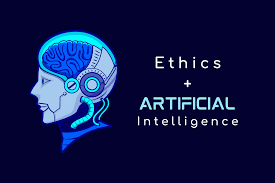As artificial intelligence becomes increasingly integrated into business operations, SMBs must navigate the ethical implications of using AI technologies. While AI offers significant benefits—such as improved efficiency, customer personalization, and data-driven decision-making—it also raises important ethical questions around privacy, bias, transparency, and accountability. Today we will explore the key ethical considerations SMBs need to address when implementing AI and provide guidance on how to navigate these challenges responsibly.
1. Understanding AI Bias
AI systems are only as unbiased as the data they are trained on, which means they can inadvertently perpetuate existing biases.
- Risks: Biased algorithms can lead to unfair treatment of certain customer segments, harming your brand’s reputation and leading to potential legal issues.
- Mitigation Strategies: Regularly audit AI systems for bias, use diverse training datasets, and involve a diverse team in AI development and oversight.
2. Ensuring Data Privacy and Security
AI relies on vast amounts of data, much of which may be sensitive or personal. Ensuring this data is handled responsibly is critical for maintaining customer trust.
- Risks: Mishandling customer data can lead to breaches of privacy, legal penalties, and damage to your brand’s reputation.
- Mitigation Strategies: Implement robust data security measures, comply with relevant privacy regulations (such as GDPR), and be transparent with customers about how their data is used. (read our June 19th blog post)
3. Maintaining Transparency and Accountability
Transparency is essential in AI implementation, especially when AI-driven decisions impact customers or employees.
- Risks: Lack of transparency can lead to mistrust among customers and employees, and potentially to legal challenges if AI decisions are perceived as unfair or opaque.
- Mitigation Strategies: Ensure transparency by clearly explaining how AI systems work, what data they use, and how decisions are made. Establish clear lines of accountability for AI-driven outcomes.
4. Balancing Automation with Human Oversight
While AI can automate many tasks, it is important to maintain human oversight to ensure that AI decisions align with your business’s values and ethical standards.
- Risks: Over-reliance on AI can lead to decisions that lack empathy or context, potentially harming customer relationships.
- Mitigation Strategies: Maintain a balance between AI automation and human oversight, ensuring that critical decisions are reviewed by humans and that AI systems are regularly evaluated for ethical compliance.
5. Fostering a Culture of Ethical AI
Building an ethical AI culture within your organization is crucial for ensuring that AI implementation aligns with your business’s values and ethical standards.
- Risks: Without a strong ethical foundation, AI implementation may inadvertently harm your brand and customer relationships.
- Mitigation Strategies: Foster a culture of ethical AI by training employees on AI ethics, encouraging open discussions about AI’s impact, and integrating ethical considerations into your AI development process.
As AI continues to play a larger role in business operations, SMBs must navigate the ethical challenges associated with its implementation. By understanding and addressing issues such as bias, data privacy, transparency, and accountability, SMBs can use AI responsibly and maintain customer trust. Building a strong ethical foundation for AI implementation is not only the right thing to do—it’s also essential for long-term success in today’s increasingly AI-driven business environment.


